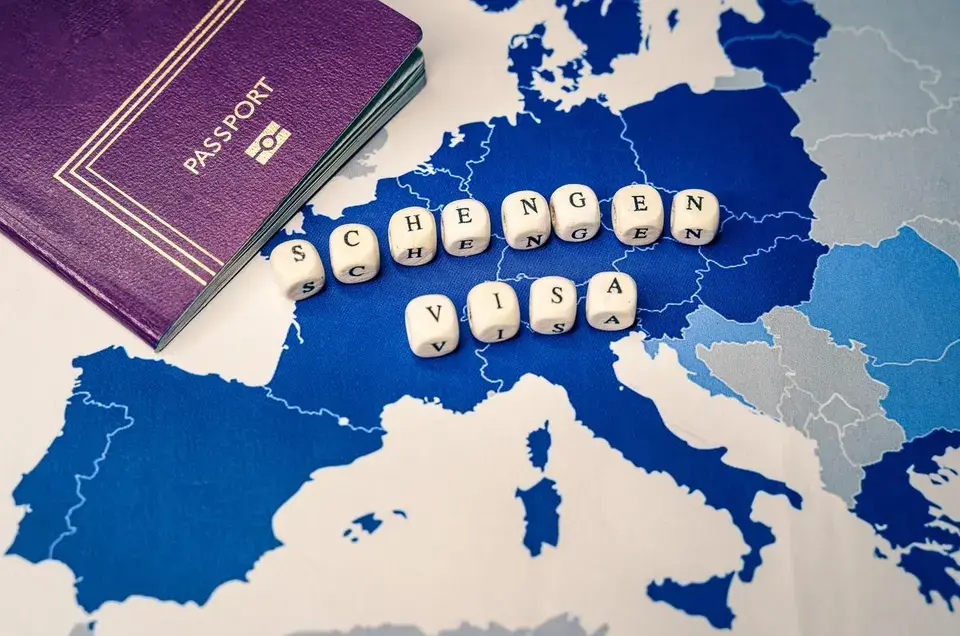Understanding the Non-Schengen Zone: What Travelers Need to Know
- NomadTravelBuddy.com

- Feb 26
- 3 min read
When planning a trip to Europe, understanding the difference between Schengen and non-Schengen countries is crucial. While the Schengen Area allows for seamless travel across 27 European countries, several nations remain outside this zone. In this guide, we’ll explore what the non-Schengen Zone is, which countries are included, and the entry requirements travelers need to know.
What is the Non-Schengen Zone?
The non-Schengen Zone refers to European countries that are not part of the Schengen Agreement. This agreement allows passport-free travel across member states, creating a unified travel area. However, non-Schengen countries maintain their own border controls, meaning travelers must go through passport checks when entering or exiting.
Why Understanding the Non-Schengen Zone Matters
Knowing which countries are part of the non-Schengen Zone is essential for travelers because it affects:
Visa requirements: Some countries may require separate visas.
Border controls: Expect passport checks when entering or exiting.
Travel itineraries: Plan your route carefully to avoid delays or complications.
Being informed about these differences ensures a smoother and more enjoyable travel experience.
List of Non-Schengen Countries in Europe
As of 2025, the primary non-Schengen countries in Europe include the United Kingdom, Ireland, and Cyprus. Here’s what you need to know about each:
1. United Kingdom
Entry Requirements: US travelers can enter the UK without a visa for tourism or business visits lasting up to six months. However, proof of onward travel and sufficient funds may be required at the border.
Stay Duration: US citizens can stay for up to six months without a visa. Extensions are not typically granted for tourist visits.
Important Note: The UK has implemented stricter immigration policies post-Brexit, so it's essential to have all necessary documentation prepared.
2. Ireland
Entry Requirements: Similar to the UK, US citizens can enter Ireland for up to 90 days without a visa for tourism or business purposes. Visitors must show proof of return travel and sufficient funds.
Stay Duration: The maximum stay for US citizens is 90 days without a visa.
Important Note: Ireland is part of the Common Travel Area (CTA) with the UK, so it's important to check regulations if traveling between these countries.
3. Cyprus
Entry Requirements: US travelers can visit Cyprus without a visa for up to 90 days within a 180-day period. A passport valid for at least six months is required for entry.
Stay Duration: Up to 90 days without a visa; longer stays require a visa application.
Important Note: Cyprus is divided into two parts, the Republic of Cyprus and the Turkish Republic of Northern Cyprus. Entry requirements may differ based on the region you are visiting.
Key Considerations for Travelers
Travel Insurance: Purchase travel insurance that covers healthcare and emergencies in non-Schengen countries.
Local Regulations: Check for specific rules regarding COVID-19, customs, and entry requirements before traveling.
Check Passport Validity: Ensure your passport is valid for at least six months beyond your planned departure date.
Understand Entry Rules: Always check the latest entry requirements, as they can change due to political or health-related factors.
Plan Your Itinerary: Consider how your travel plans will interact with both Schengen and non-Schengen countries to maximize your time and experience in Europe.
Understanding the non-Schengen Zone is vital for anyone planning a trip to Europe. By knowing the entry requirements and stay durations for countries like the United Kingdom, Ireland, and Cyprus, you can avoid unexpected issues and enjoy a seamless travel experience. Whether you’re exploring Schengen or non-Schengen countries, staying informed and prepared is the key to a successful journey.
NomadTravelBuddy.com is a travel social media platform where users can turn their passion for travel into income, connect with fellow travelers, find travel companions, learn languages, watch travel destination videos and influencer content, and book flights, accommodations, cruises, rental cars, excursions, and more. #TravelSocialNetwork






Comments